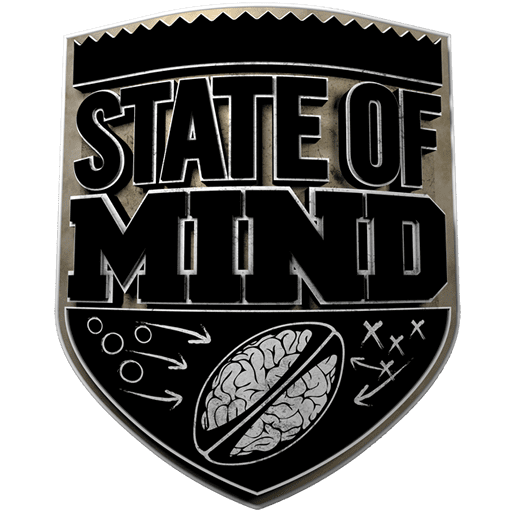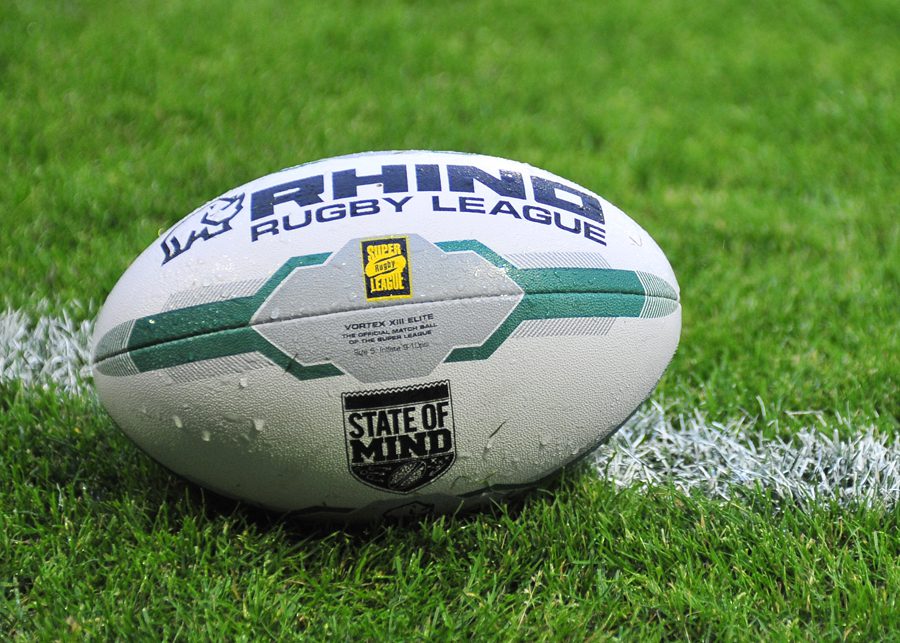Four of Rugby League’s greatest ever players, Lewis Jones, Martin Offiah MBE, Garry Schofield OBE and Mick Sullivan, have joined the sport’s most exclusive and prestigious club, the Rugby League Hall of Fame.
They were formally inducted into the Hall of Fame at a Rugby League World Cup Celebration Dinner at Huddersfield on Friday night when they were welcomed by current Hall of Fame members Billy Boston MBE and Neil Fox MBE.
The four players take the total number of legends in the Rugby League Hall of Fame to 21 and are the first to join the game’s pantheon since 2005. RFL Chief Executive Nigel Wood said: “It is my privilege and pleasure to welcome these four living legends of the game into the Rugby League Hall of Fame.
“Lewis, Martin, Garry and Mick are recognised as four of the greatest British sportsmen of the last century and it is right and proper that their considerable talents should be recognised in this way. “All four played important roles for their countries in Rugby League World Cups and to be able to induct them into the Rugby League Hall of Fame at a time when the sport is in the midst of celebrating its most successful World Cup of all time makes it even more special.”
Membership of the Rugby League Hall of Fame is restricted to players who had a record of outstanding achievement at the highest level of the game and who have made a lasting contribution to the sport. They are also deemed to have a reputation that transcends the era in which they played.
The four new inductees were identified by a specially-convened selection panel comprised of experienced journalists, broadcasters and administrators. The inductions will take place as part of a dinner organised in association with RL Cares, Huddersfield Heritage and the Men of League Foundation.
RL Cares Chairman Terry Flanagan said: “We are honoured to have this opportunity to host the Rugby League Hall of Fame inductions at a dinner which celebrates the sport’s history and international heritage.
“The four players represented the sport, their clubs and their countries with pride and passion throughout their careers and have come to stand for many of the values the Rugby League family holds dear.”
The 21 members of the Hall of Fame are Eric Ashton MBE, Billy Batten, Brian Bevan, Billy Boston MBE, Douglas Clarke MM, Neil Fox MBE, Ellery Hanley, MBE. Martin Hodgson, Lewis Jones, Vince Karalius, Roger Millward MBE, Alex Murphy OBE, Martin Offiah MBE, Jonty Parkin, Gus Risman, Albert Rosenfeld, Garry Schofield, Mick Sullivan, Jim Sullivan, Tom Van Vollenhoven, Harold Wagstaff.
Full biographies of the four new inductees are as follows:
Lewis Jones
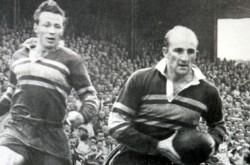
Rugby League has had few talents to rival the magnetic box-office appeal of Lewis Jones. Tagged the ‘Golden Boy’ when he made the move from Llanelli to Leeds as a record £6,000 signing in 1952, his 12-year career with the Headingley club produced a host of records that stood the test of time.
And he achieved them with a style that was unique, including the fabled double-kick acceleration, the long, hanging passes and an unerring goal-kicking accuracy attained from a minimal run-up. Jones was an attacking genius who had crowds flocking to see him. First capped by Wales at 18, he won 10 caps in rugby union and was a replacement on the 1950 British Lions tour of Australia and New Zealand whilst still a teenager.
The Welsh wizard amassed his enduring world-record points total of 496 in 48 appearances in the 1956-57 season, breaking Jim Sullivan’s 406-point tally set in 1933-34. He scored 36 tries and 194 goals, yet failed to score as Leeds won the Challenge Cup with their 9-7 Wembley defeat of Barrow.
Four years later, having moved from centre to stand-off and heading towards the twilight of his glorious career, Jones was the captain and inspiration of Leeds’s first-ever Championship triumph, starring in the final with a try and five goals in the 25-10 defeat of Warrington.
Outstanding in centre, stand-off or full-back roles, his distinguished career concluded with Leeds in 1964 but continued in a captain-coaching capacity for a further seven years in Australia. He left Leeds having set club records for most goals and points in a career.
Jones became a dual-international for Wales and was selected for the 1954 Lions tour, going on to create unsurpassed tour records for goals (127) and points (278) including his record 10-goal haul in the second Test defeat of Australia in Brisbane.
He played all six Tests on that tour and went on to win 15 caps for Great Britain in just three years, scoring on every occasion and appearing in four positions. But the ill-fated 1957 World Cup tour to Australia proved to be his swansong at international level and 66 goals and 147 points were both GB records at the time.
In a British playing career of more than 400 games, Lewis Jones stood behind only fellow Hall of Fame members Jim Sullivan and Gus Risman on the game’s all-time points chart with 3,445. He would score more than one thousand more for the Sydney-based Wentworthville club in Australia and was still playing into his late-thirties.
Mick Sullivan
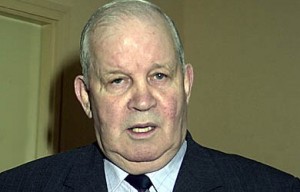
Mick Sullivan set the standard when it came to playing Test football for Great Britain. The wing powerhouse set an appearance record of 46 tests between 1954 and 1963, scored an unsurpassed 41 tries and played a record 36 consecutive tests over a seven-year period following his debut at centre in the World Cup defeat of Australia at Lyon.
He was playing for Huddersfield when starring in Great Britain’s backs-to-the-wall triumph in that inaugural World Cup tournament and would be involved in record-breaking transfers when joining Wigan for £9,500 in 1957 and moving on to St Helens for £11,000 in 1961.
Tough and uncompromising in defence as well as being a prolific attacking weapon, ‘Sully’ appeared in the first three World Cup competitions, winning the trophy in 1954 and 1960, in addition playing each test in the Ashes-winning series of 1956, 1959 and, on foreign soil, in 1958 and 1962.
He scored a try hat-trick in the deciding test in Sydney when the Lions clinched that 1958 Ashes series and scored a record 38 tries in 19 tour appearances that year, shattering the 36-try mark set by Billy Boston on the preceding Lions tour four years earlier.
His final test for Great Britain was an inauspicious occasion as the Ashes were surrendered in a 12-50 defeat at the hands of Australia at Swinton in 1963. Sullivan was playing in the Second Division for York at the time, becoming only their sixth GB international.
Having signed for Huddersfield from Shaw Cross amateur club in 1952, he won his only honour with the ‘Fartowners’ when they defeated York in the 1957 Yorkshire Cup final. Shortly afterwards he joined Wigan and was a try-scorer in consecutive Wembley wins over Workington (1958) and Hull (1959).
He won a third Cup winners’ medal in four years as St Helens defeated Wigan in 1961 and added Lancashire Cup winners’ medals with Saints in 1961 and 1962. His only disappointment was being suspended for Wigan’s 1960 Championship Final win over Wakefield having been sent-off in the semi-final defeat of St Helens.
After his sojourn at York, his career turned full circle when he signed for hometown Dewsbury and was their player-coach, now appearing at loose-forward, when they lost to St Helens in the Cup semi-final at Swinton in 1966.
Mick Sullivan went to play in Australia having scored 342 career tries, topping the game’s chart once (with 50) in 1957-58. And that try tally included 120 in a representative career of 102 games for Yorkshire, England and Great Britain.
Garry Schofield
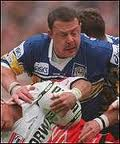
A Lions tourist on four occasions, Garry Schofield equalled Mick Sullivan’s 46-cap Great Britain record when appearing in his sixth Ashes series, as substitute, in the final two Tests in 1994.
A former BARLA Youth tour captain, he marked his debut season with Hull by topping the game’s try chart with 38, as a teenager, in 1983-84. Schofield toured with the Lions at the end of that season and announced himself on the test stage by scoring unforgettable solo tries in Sydney and Brisbane as Frank Myler’s side lost a lamentable series.
He equalled the try-scoring records of Jim Leytham, Billy Boston and Alex Murphy when crossing for all four touchdowns in Great Britain’s 25-8 second Test defeat of New Zealand at Wigan in the drawn series of 1985. And he joined the elite band of players to score tries in each game of an Ashes series (five tries in total) as GB lost all three tests on home soil to the Wally Lewis-led Kangaroos of 1986.
As vice-captain, Schofield excelled in conjunction with his captain, Mike Gregory, on the 1990 Lions tour to PNG and New Zealand, revelling in the switch to stand-off as GB savoured a 2-1 victory in one of the most closely-fought series in history. His drop-goal proved the difference in the opening test at Palmerston North and he scored tries in Auckland and Christchurch. Aggregate scores in the series were level at 45 points each.
He captained his country on 13 occasions, including the 1992 World Cup Final against Australia at Wembley, throughout the 1992 Ashes series in Australia and when Great Britain produced their finest performances of modern times when white-washing the Kiwis, 3-0, in 1993.
At domestic level, apart from a couple of Yorkshire Cup wins in 1983 and 1984 and a substitute’s appearance in the epic 1985 Wembley final defeat against Wigan, Schofield’s career with Hull yielded few honours despite a prolific try return.
His £155,000 transfer to hometown Leeds in1987 broke the transfer record and within a year he was starring in the Yorkshire Cup defeat of Castleford. That was to be his only winners’ medal as two Wembley appearances brought defeats against Wigan in 1994 and 1995. He took the Man of Steel award for a sensational year in 1991.
The arch try-poacher scored 328 touchdowns in a British career of almost 500 games and that was complemented by four close-season stints in Australia, with Balmain in 1985, 1986 and 1987 and with Western Suburbs in 1989.
Martin Offiah www.youtube.com/watch?v=mBtoUy5cHYU
Hackney-born Martin Offiah became the highest try-scoring Englishman of all-time in a career with Widnes, Wigan, London Broncos, Salford, Eastern Suburbs and St George. When his career came to a halt with Salford in 2001, the jet-heeled winger was behind only Brian Bevan and Billy Boston on Rugby League’s all-time try-scoring chart.
Offiah amassed 501 career touchdowns including 20 in stints with the Roosters and Dragons between 1989 and 1993. And he headed the British try-scoring charts on a record six occasions between 1987-88 and 1995-96, surpassing the five-time feats of Australian wing legends Brian Bevan and Eric Harris.
Signed from Rosslyn Park RU club in the summer of 1987, Offiah headed the game’s try-scoring charts in each of his four seasons with Widnes including 60 in 1988-89. His debut season saw him take the coveted Man of Steel accolade after he had shattered Frank Myler’s tries-in-a-season record for Widnes.
He was instrumental in Widnes winning consecutive First Division titles in 1987-88 and 1988-89, scoring a try hat-trick in the final game at home to Wigan on the latter occasion. Additionally, he savoured three consecutive Old Trafford Premiership triumphs and played his part in an epic 1989 World Club Challenge defeat of Canberra Raiders at the Manchester venue. He became a World Club Challenge winner with two clubs when Wigan defeated Brisbane Broncos in their own backyard in 1994.
Offiah became the game’s costliest player when moving from Widnes to Wigan for £440,000 in January 1992 and amassed 30 tries in 16 appearances playing outside Gene Miles that season, including 5 in the Cup semi-final defeat of Bradford and a club record 10 against Leeds. There was also a Lance Todd Trophy-winning display when scoring two tries in the Wembley defeat of Castleford.
He joined the exclusive band of players to win the Lance Todd Trophy twice when scoring his iconic length-of-the-field try in Wigan’s 1994 Cup Final defeat of Leeds and was a try-scorer in defeat when London Broncos made their Wembley debut against Leeds in 1999.
After making a try-scoring GB debut in Avignon in 1988, Offiah made the first of three Lions tours that year and was a try-scorer as the Lions ended their 10-year wait for victory over Australia in Sydney. He was a try-scorer in the 1990 Wembley Test defeat of Australia and in the 33-10 victory in Melbourne two years later.
He set a Great Britain record with his 5 tries in the 1991 defeat of France at Headingley and equalled England’s try record with 4 in the 73-6 defeat of France at Gateshead five years later, emulating Jim Leytham, Stan Moorhouse, Peter Norburn and Stuart Wright.
But he was unable to savour a series win over Australia and finished second-best in two World Cup Finals in 1992 (for Great Britain) and 1995 (with England).
His 33 test appearances produced 26 tries, with only Mick Sullivan and Garry Schofield being ahead of him on the GB chart, plus a further 6 tries in 5 appearances for England.
